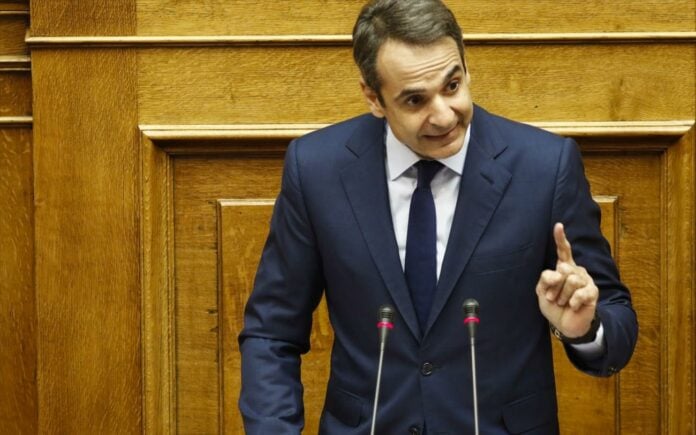An end-of-the-week debate in Parliament on the “hot-button” topic of crime and public safety generated sparks on Friday, with main opposition New Democracy (ND) Kyriakos Mitsotakis directly blaming what he called the leftist-rightist coalition government’s “kid glove” approach to law enforcement for an alleged surge in criminality.
Mitsotakis also pointed to a law passed by the current government, in its first months of power in 2015, allowing dangerous felons out of prison in an early release program.
“Lawlessness is constantly gaining (in Greece), with the cooperation and tolerance of the government… Greeks are afraid,” Mitsotakis said from Parliament’s podium. The main opposition center-right party had tabled an off-the-agenda question for Prime Minister Alexis Tsipras, charing that the government is not allowing law enforcement authorities to property do their job.
Mitsotakis took particular aim at a law, called the “Paraskevopoulos Law” after the former justice minister under whose watch it was ratified, which he said was responsible for the release of 2,000 violent felons back into Greek society way before their prison terms were completed.
“What do you say to the mother of the 27-year-old jewelry shop owner murdered by a drug dealer, who was freed with under the Paraskevopoulos law? What do you say to the children of the pensioner murdered by the people released by the Paraskevopoulos law? To the parents of the 19-year-old student (Maria Ladenburger) raped and murdered in Germany by an Afghan man released under the Paraskevopoulos law? What do you say to the elderly woman burned with a clothes iron by criminals released under the Paraskevopoulos law?” Mitsotakis railed, in directing his questions to Tsipras.
ND and much of the opposition has blamed the government for what they claim is a surge in street violence by masked gangs, especially centered around the Exarchia district, as well as for transforming Greek prisons into “hotbeds” of collusion between organized crime figures and various urban terrorists.
Two “jailhouse plots” alluded to by the opposition over the recent period include a botched blackmail of a prominent defense attorney in his office last month, where he was gunned down, and the months-long kidnapping for ransom of a well-known businessman on Crete.
In both cases, however, police appear to have solved the crime and arrested the primary perpetrators.
In reply, Tsipras referred to the adoption, by ND, of a “right-wing rhetoric of fear, utilized by other parties in Europe, but right-wing parties, which are doing well (in the polls) compared to their (political) weight”.
Tsipras dismissed the criticism, saying that the crime rate has actually fell during the two years that his leftist SYRIZA is in power, while ascribing petty partisan politics for the tabled question.
“You adopted this extremist rhetoric because you’re not comfortable with the fact that the country is again finding it step and exiting the (economic) crisis … you are not happy that the country is on a recovery course, because your only concern is to return to power,” Tsipras said.














